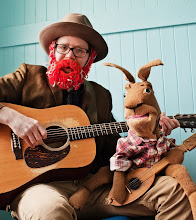Monday, January 11, 2010
Lomax-a-Day, Day 11
I discovered "Rattlesnake" this weekend in the 'Across the Blue Ridge' section of 'The Southern Mountains and Backwoods.' I'm breaking my section-by-section approach for a day in order to go back to what I see as an almost perfect song. I'm fascinated by the use of animals in American folklore and folk song, in part because of their ability to illuminate the animal nature still intact in humans (see Greil Marcus' take on the cuckoo in yesterday's post). I also love a singer's or storyteller's journey into an animal perspective, both for the outsider status it allows in commenting on human culture, and for the sheer imagination it takes to inhabit an inscrutable brain and body. In "Rattlesnake," the singer effortlessly melds the animal and human perspectives. He starts each verse with an invocation and a question--"Rattlesnake, o rattlesnake/ what makes your teeth so white?" He then slips into the first person, answering his own question: "I've been in the bottom all my life/ an' I ain't done nothin' but bite." It's unclear just who's speaking. Is the rattlesnake answering? Or does the singer, through his own experience, feel the the miserable plight of this hated animal? The song goes on, creature by creature, revealing struggle after struggle. The line between animal instinct and human chore is blurred throughout. A few lines just kill me: "I've been in the bottom all my life/ till I'm mortified in my head"; "It's a wonder I don't smotherfy/ livin' down in the ground"; "Been robbin' your cornpatch all my life/ it's a wonder I don't die." Once again, what could be written off as a cute animal song for kids is in fact a profound, deeply sad meditation on life, duty, and death.
Subscribe to:
Post Comments (Atom)


Thank you for the music! I played your lovely rendition of this folk song for my Music Theory classes this week.
ReplyDelete